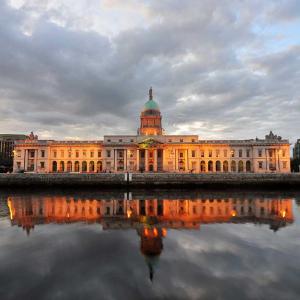Following recent visits, the fund said that both countries’ public finances are suffering despite efforts to allay the impact of tumbling oil prices on their petroleum-heavy economies.
While only UAE is a member of the Organisation of the Petroleum Exporting Countries (OPEC), whose members include the biggest oil exporters, Oman is the most substantial in the world outside of that group.
In Oman, oil revenues accounted for just under 70% of the government budget in 2014, while in Abu Dhabi this rises to 80%.
As a result, falling prices mean a widening fiscal deficit in UAE this year, while in Oman lower revenues are expected to offset savings worth $4.5bn made by cutting wages, benefits, subsidies, defence and capital investment, leaving a record-high deficit largely unchanged.
While the deficit in both countries is expected to improve within the next few years, the IMF said Oman and UAE will have to pursue additional spending cuts and tax increases.
In UAE, the fund warned that fiscal consolidation should be more gradual than the authorities currently envisage for the time being, and accelerate later on as cyclical weaknesses dissipate.
Public investment should be preserved, although its efficiency should be enhanced, and plans to introduce VAT and increase taxes implemented in a timely manner, it continued.
Remaining energy subsidies should be phased out, while the country should continue to use international markets and sovereign wealth funds to finance the deficit.
“Efforts to strengthen public financial and debt management frameworks should also be pursued,” it added.
The fund said that further fiscal adjustments are needed in Oman also, starting from next year.
This should also include reducing borrowing costs, phasing out remaining subsidies, containing recurrent government expenditures and the introduction of existing duties.
“Covering the fiscal deficit will require a mix of domestic and external borrowing, coupled with drawing down government financial assets,” the IMF’s statement said, adding the government should continue to strengthen its framework for debt and asset management.
Both governments plan to step up their economic diversification as a result of the slump in prices, which the IMF welcomed.
The UAE plans to reduce the economy’s oil dependency from around 40% of gross domestic product to 20% by 2020. In Oman, the government is aiming for 9%.
The IMF recommended both countries undertake structural reforms to develop the private sector, enhance the business environment and increase efficiency.













